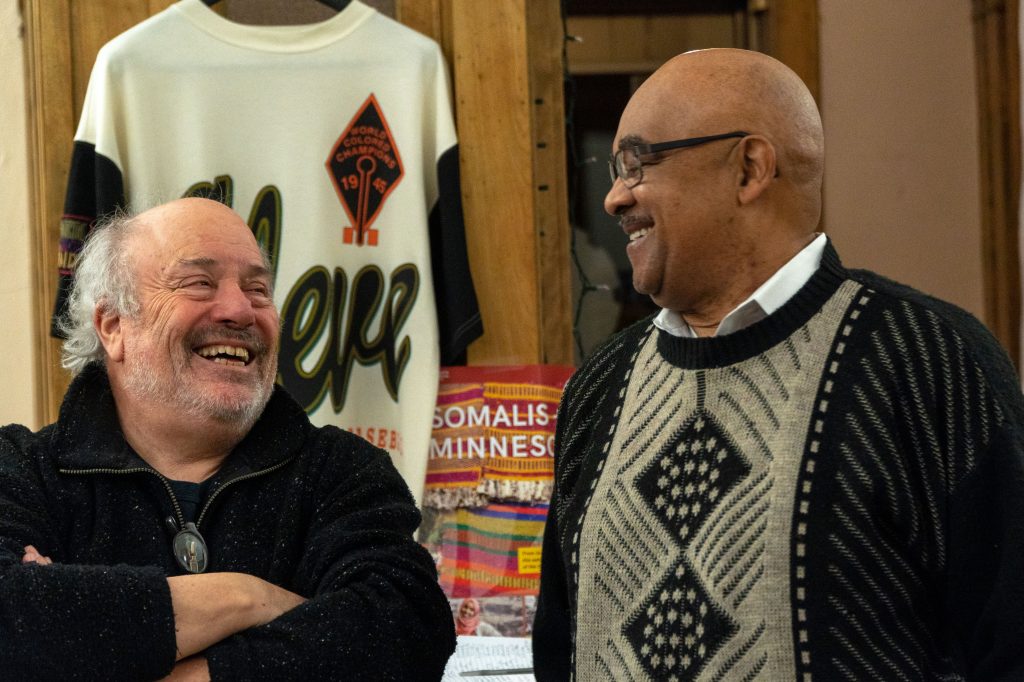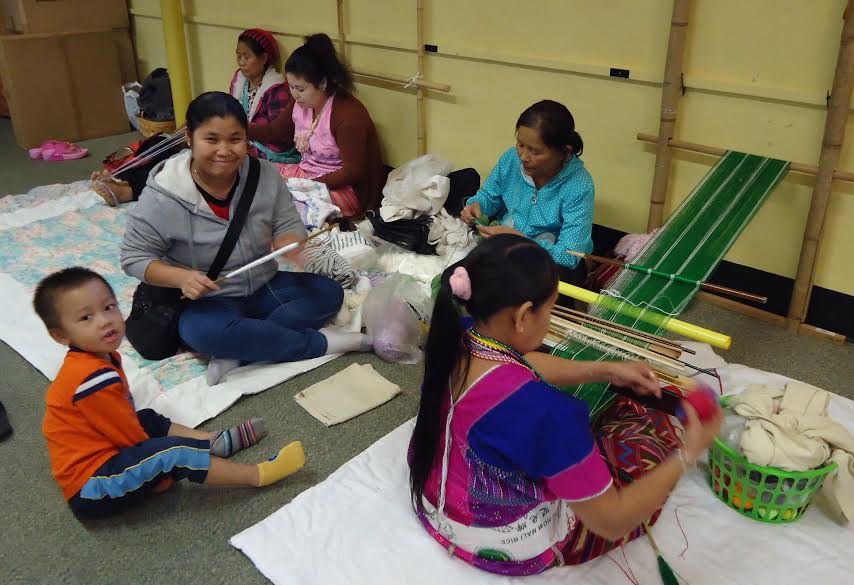By Dr. Peter Rachleff, co-executive director of the East Side Freedom Library. This post is the second in a new blog series on stories of education for liberation work happening in the Twin Cities and surrounding region, leading up to the 2019 FMFP conference.
In June 2019, the East Side Freedom Library celebrates our fifth anniversary. Located in St. Paul’s most diverse neighborhood, ESFL inspires solidarity, advocates for justice, and works toward equity for all.
We locate ourselves at a number of intersections: between, among, and within a range of communities; between the labor movement and social movements, between books and programs; between the past, the present, and the future; between education and entertainment. We use art and culture to facilitate story-telling, and we see story-telling—the sharing of experiences—as a means to overcome the otherization promoted by our dominant culture and, instead, to build bridges.

For hundreds of years, the East Side was Dakota land, and ESFL recognizes that our Dakota relatives and other native peoples are part of this community’s present and future, as well as our past. We have been working in collaboration with them in discussing representations and reflections of their history, including the history of settler colonialism and treaties, the name and functions of “Indian Mounds Park,” the murals at St. Paul City Hall, and the creation of the Wakan Tipi Interpretive Center.
We have also collaborated with them to educate our neighbors, from the descendants of European immigrants and enslaved Africans to the newest arrivals from southeast Asia, central America, and east Africa, in the practices of expropriation and genocide which have shaped our country’s history. We also seek to explore the ways that these practices shaped their pasts and led to their emigration journeys. Together, we hope to build a new understanding of what this country can be, and to build our capacity to realize it.
ESFL sees the labor movement as a central agent in this process. Most of us know little of the labor movement’s past, both its achievements and its shortcomings. We seek to educate working class people, union members and non-members, from middle schoolers to retirees, about this rich, complex, and mostly untold history, in order to engage the present and shape the future.
We provide resources and mentorship for middle and high school students pursuing “History Day” projects. In partnership with the St. Paul Regional Labor Federation, we have organized and hosted a Union Job and Resource Fair, not just to place job-seekers but also to educate our neighbors about what it means to “work union.” In partnership with the SPRLF, SEIU Healthcare Minnesota, the Minnesota Nurses Association, and other unions, we have launched the New Brookwood Labor College, a project committed to promoting critical thinking and educating activists “into the working class.” ESFL has also hosted summer book groups with the St. Paul Federation of Educators and a labor film series with AFSCME. All of this work is as attentive to the ways that racism, patriarchy, and elitism have limited the labor movement, as it is to labor’s heroic triumphs.

ESFL also celebrates cultural work and brings it and its producers into this space and into this community. We have hosted art exhibits, plays, concerts, poetry readings, and art-driven workshops, particularly those which engage our mission. We have pursued this work in collaboration with such groups as theater companies directed by people of color, Rhythmic Literature, an organization of Ethiopian poets and artists, and Hmong women writers groups, on the one hand, and such local institutions as the St. Paul Chamber Orchestra, the Schubert Club, and Park Square Theater.
Most of this work has been accomplished with volunteer labor—by friends and neighbors we call “collaborators.” They have cataloged and shelved books, built shelves, gardened, blogged, cleaned bathrooms, and organized and hosted events. Through this work, they have built a community, a community which keeps growing, deepening, evolving.
ESFL continues to seek productive relationships with other institutions: Metropolitan State University; Minnesota Historical Society; Minnesota Humanities Center; the St. Paul Public Library System; local colleges and universities. This has been a slower process than we had anticipated, but we do see progress here. Indeed, our connection with Free Minds, Free People will—hopefully—bring us an additional step in this direction.
You can read more about East Side Freedom Library, including events and other opportunities to get involved, on their website.